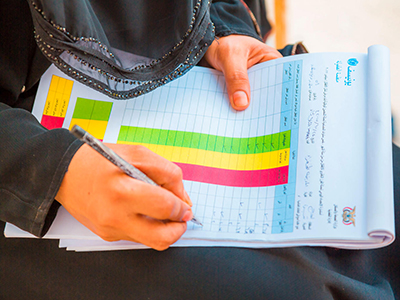Cover image: © UNICEF/UN0143439/Alhariri
In this course, you will explore the importance of Ethical Evidence Generation, the key ethical principles and considerations and how this applies to evidence generation process.
Completion of this course will meet the above requirement and receipt of a certificate will evidence appropriate training for future research programmes undertaken.
Learning objectives
At the end of this course, you will be able to:
- To define ethical evidence generation.
- To explain why ethics is critical for all evidence generation activities.
- To understand the key ethical principles.
- To understand key ethical considerations throughout the evidence programme.
Audience
This course is open to anyone interested in learning about Ethical Evidence Generation at UNICEF and more specifically ethical evidence generation involving children.
Length
It should take you about 75 minutes to complete this self-paced course.
Methodology
This course is composed of a single short self-paced animated module, including various examples and activities.
Structure
This course is composed of 3 modules and a final assessment:
- Introduction.
- Principles of ethical evidence generation.
- Key considerations in ethical evidence generation.
- Final assessment.
Contact details
For content related questions please contact Karen Carter
